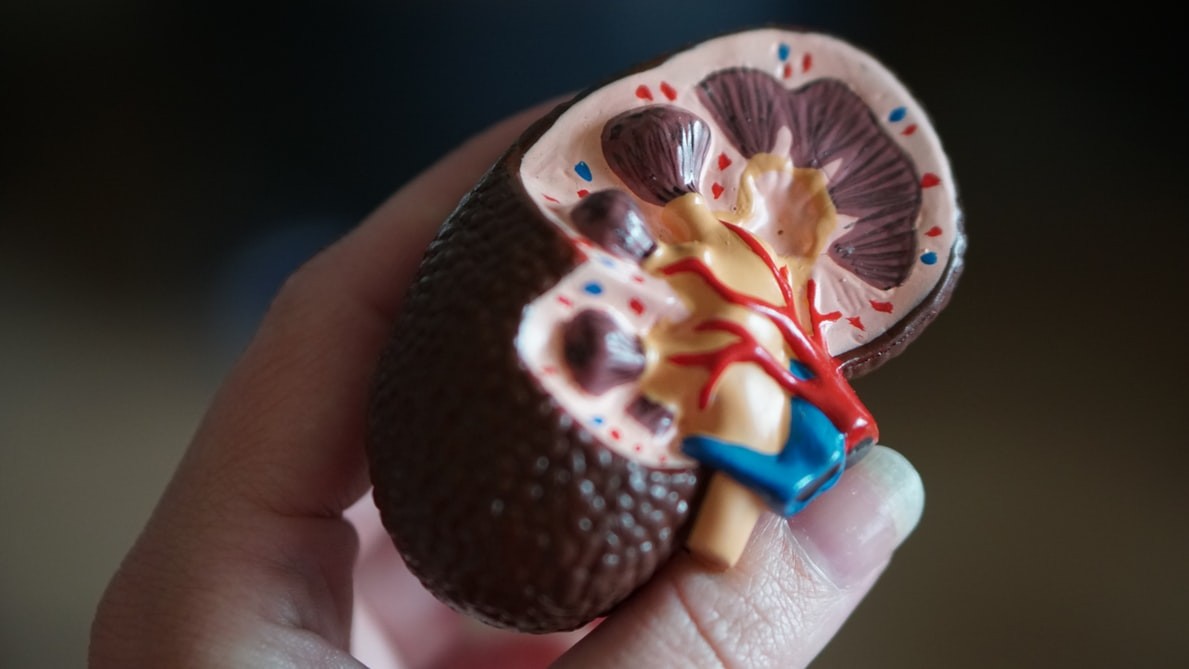
Mortality rates higher in chronic dialysis from acute kidney injury, UC research finds
Study suggests need for customizable treatment strategies
New research from the University of Cincinnati shows kidney failure resulting from acute kidney injury (AKI) leads to a higher risk of death in the first six months compared to kidney failure from diabetes or other causes and that risk is even higher for women.
AKI occurs when kidneys stop working properly and can range from minor loss of kidney function to complete failure. AKI often happens as a complication of another serious illness. The UC study highlights the need for developing customizable treatment strategies targeting factors that enhance kidney recovery.
The study, published in the Clinical Journal of the American Society of Nephrology, finds a kidney recovery rate of 35% in patients with kidney failure due to AKI. Compared to men, women had a 14% lower likelihood of kidney recovery. Blacks, Asians, Hispanics and Native Americans had lower likelihoods of kidney recovery when compared to whites.
“Kidney failure due to AKI is associated with significant morbidity and mortality,” says Silvi Shah, MD, assistant professor in the division of nephrology, Kidney CARE Program at UC, and lead author of the study. “There is not much available data on the patterns of recovery from AKI and its impact on outcomes for dialysis patients. So, in this study, we examined the association of kidney failure due to AKI with the outcome of all causes of mortality, and the associations of sex and race with kidney recovery.”
The study evaluated over 1 million dialysis patients between January 1, 2005, and December 31, 2014, using data from the United States Renal Data System. The mean age of the study cohort was 63 years and 3% of patients starting long-term dialysis had kidney failure due to AKI. Compared to kidney failure due to diabetes, kidney failure due to AKI was associated with a higher mortality in the first three months as well as the first three to six months following the start of dialysis.

Charuhas Thakar, MD, senior author of the study, and Silvi Shah, MD, lead author of the study. Photo/Colleen Kelley/UC Creative + Brand
“AKI, defined as sudden deterioration in kidney function leading to kidney failure, is not uncommon and significantly increases the risk of morbidity and mortality” says Charuhas Thakar, director of the division of nephrology at the UC College of Medicine and senior author of the study.
Of the patients with kidney failure due to AKI, 35% eventually recovered their kidney function, 95% of those within 12 months. Women had a 14% lower likelihood of kidney recovery than did men. Blacks, Asians, Hispanics and Native Americans had lower likelihoods of kidney recovery as compared to white.
“This study suggests the need for developing customizable treatment strategies for patients with kidney failure due to AKI; in particular, focusing on factors promoting kidney recovery,” says Thakar. “This research significantly contributes to improving the current knowledge gap in this area.”
Shah says the study is unique in that it addresses a comprehensive group of patients from a national database to better understand the outcome of kidney failure due to AKI. Additionally, the analysis of kidney recovery focused on the associations between sex and race and the chances of recovery.
“Our findings suggest lower kidney recovery rates in women and among minorities,” says Shah. “Given the differences observed across sex and race, further studies of the possible cultural and social contributors and strategies to improve clinical monitoring of patients with kidney failure due to AKI for kidney recovery may have to be specifically directed to that population subgroup.”
In addition to Thakar, assisting in the research were Annette Christianson and Karthikeyan Meganathan, research associates in the UC Department of Environmental Health; Anthony Leonard, PhD, research associate professor in the UC Department of Family and Community Medicine; and Kathleen Harrison, senior clinical researcher in the UC Division of Nephrology and Hypertension. Shah is supported by funds from the UC Division of Nephrology.
Impact Lives Here
The University of Cincinnati is leading public urban universities into a new era of innovation and impact. Our faculty, staff and students are saving lives, changing outcomes and bending the future in our city's direction. Next Lives Here.
Stay up on all UC's COVID-19 stories, read more #UCtheGood content, or take a UC virtual visit and begin picturing yourself at an institution that inspires incredible stories.
Related Stories
Cancer Center presents research at AACR 2025
April 25, 2025
University of Cincinnati Cancer Center researchers will present abstracts at the American Association for Cancer Research Annual Meeting 2025 in Chicago.
UC prepares for another record commencement
April 25, 2025
The University of Cincinnati will celebrate another record spring commencement as undergraduate ceremonies return to Nippert Stadium.
What a proposed cosmetic ingredients ban could mean for your...
April 24, 2025
The University of Cincinnati's Kelly Dobos was featured in an Allure article discussing how a proposed New York bill prohibiting the sale of items with specific ingredients could affect the cosmetic products you buy.
